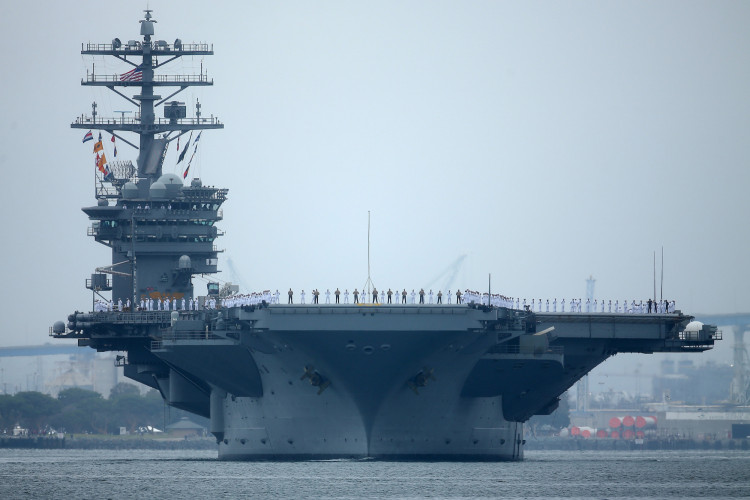In a historic trilateral summit held at the White House on Thursday, President Joe Biden hosted the leaders of Japan and the Philippines, reaffirming the United States' "ironclad" defense commitments to both countries amid their ongoing territorial disputes with China. The meeting, which brought together Filipino President Ferdinand Marcos Jr. and Japanese Prime Minister Fumio Kishida, underscored the administration's efforts to bolster alliances in the Indo-Pacific region and counter Chinese aggression.
"When we stand as one, we're able to forge a better future for all," Biden declared in the East Room of the White House. The summit focused on the separate territorial disputes Japan and the Philippines have with China, specifically the Senkaku Islands in the East China Sea and areas of the South China Sea, such as Second Thomas Shoal.
Tensions between the Philippines and China have escalated in recent months, with clashes occurring when Philippine attempts to resupply forces stationed on a grounded World War II-era navy transport ship on Second Thomas Shoal were met with Chinese Coast Guard ships firing water cannons, resulting in injuries to Filipino sailors and damage to vessels. China claims the shoal, which lies within the Philippines' exclusive economic zone, as its sovereign territory, defying an international arbitration ruling.
In response to these incidents, Biden stated, "Any attack on Philippine aircraft, vessels, or armed forces in the South China Sea would invoke our mutual defense treaty." The 1951 mutual defense treaty between the US and the Philippines stipulates that both sides would help defend each other if either were attacked by a third party.
The trilateral summit also saw the announcement of several initiatives aimed at bolstering the Philippines' military capabilities and infrastructure. The White House revealed plans for a new rail and shipping corridor between the Philippines' Clark Air Base and Subic Naval Base, a move designed to send a clear message to Beijing. Additionally, the US and Japan pledged millions of dollars in funding for Open Radio Access Network technology and an upcoming Coast Guard patrol in the Indo-Pacific.
President Marcos emphasized the shared values and vision of the three countries, stating, "The Philippines, Japan, and the United States meet today as friends and partners bound by a shared vision in pursuit of a peaceful, stable, and prosperous Indo-Pacific." He added that the three nations are "linked by a profound respect for democracy, good governance, and the rule of law."
The summit comes as the region grapples with the uncertainty of China's aggressive posture toward Taiwan and the South China Sea, along with nuclear provocations from North Korea and its burgeoning relationship with Russia. These concerns have drawn regional allies closer to the US, with Japan serving as a key partner in Biden's alliance-building efforts in the Indo-Pacific.
Japan has significantly shifted its defense posture in recent years, committing to increasing defense spending to 2% of GDP by 2037 and acquiring American Tomahawk missiles to enhance its counterstrike capabilities. Meanwhile, the US has sought to reestablish strong ties with the Philippines, which had frayed under former President Rodrigo Duterte's pursuit of closer relations with China.
In the days leading up to the summit, the US, Japan, Philippines, and Australia conducted maritime military exercises near the Philippines' Exclusive Economic Zone (EEZ) in response to alleged "harassment" by Chinese ships in the South China Sea.
As the three leaders expressed their "serious concern" over China's actions in the disputed waters, they reiterated the importance of respecting the sovereign rights of states within their EEZs, consistent with international law and the United Nations Convention on the Law of the Sea (UNCLOS). The joint statement also highlighted their opposition to China's "dangerous and coercive use of Coast Guard and maritime militia vessels in the South China Sea."





